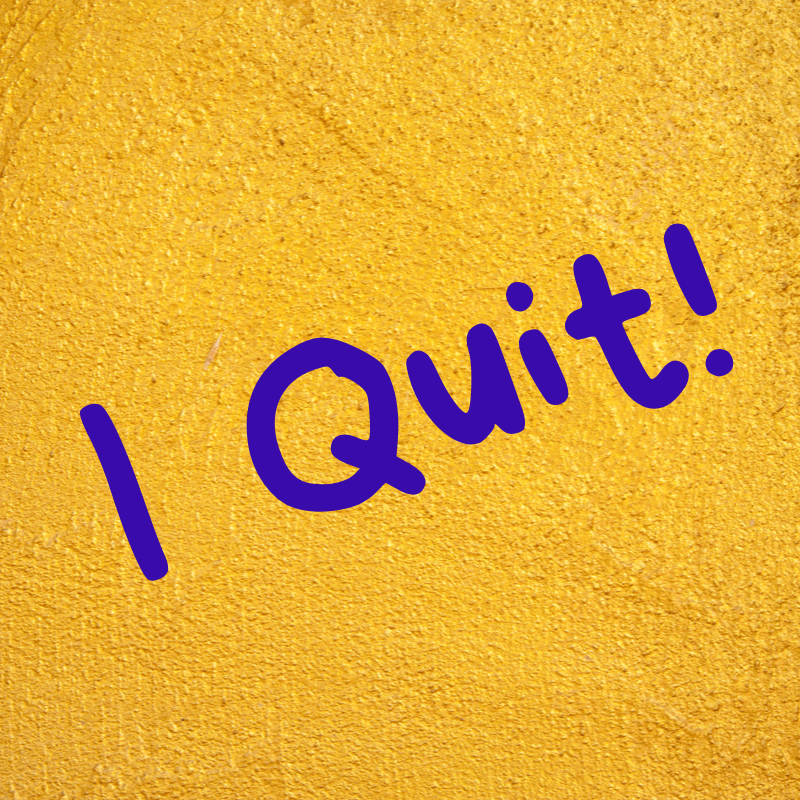
I recently helped a colleague quit his job, and he’s happier than I’ve seen him in years. He worked for a cruel and racist boss who made him and his colleagues miserable.
At first, he didn’t want to quit even though the job wasn’t what he had expected. He didn’t want to admit that the work environment was harming his well-being.
He believed that “winners never quit,” and if he just tried harder, he could make it work. He didn’t want to give up.
Thankfully, he realized that choosing to stop doing something that wasn’t creating the results he desired made him a winner.
Many of us were raised to believe that winners never quit. We believe that persistence pays off in the long run, and we’d be losers if we give up. An emphasis on grit and perseverance reinforces the pressure to stay the course.
There are times, however, when we need to permit ourselves to call it quits. We need to ask, “If I stop doing this, what would be possible?” Or, “What would it be like if I left this toxic job or dropped this negative friendship?”
Permitting ourselves to quit doesn’t apply only to harmful work environments or relationships. I worked with a brilliant Foreign Service officer who realized on her first day of training that she’d made the wrong decision. She was living her parents’ dream and was miserable, even though all of her colleagues were excited.
When we met, she was discouraged and frustrated. Her demeanor changed, however, when she told me her dream of being an artist and what she would do with her life if she quit the Foreign Service. She knew what she wanted and just needed to permit herself to disappoint her friends and family. Once she left the Foreign Service, she became a winner.
If your instincts are telling you to quit something or someone, listen to it. Explore why you want to leave. What stops you from quitting? Write down the pros and cons of quitting and staying. Note the opportunity costs of staying. After exploring all of your options, permit yourself to call it quits if that’s what you want.

